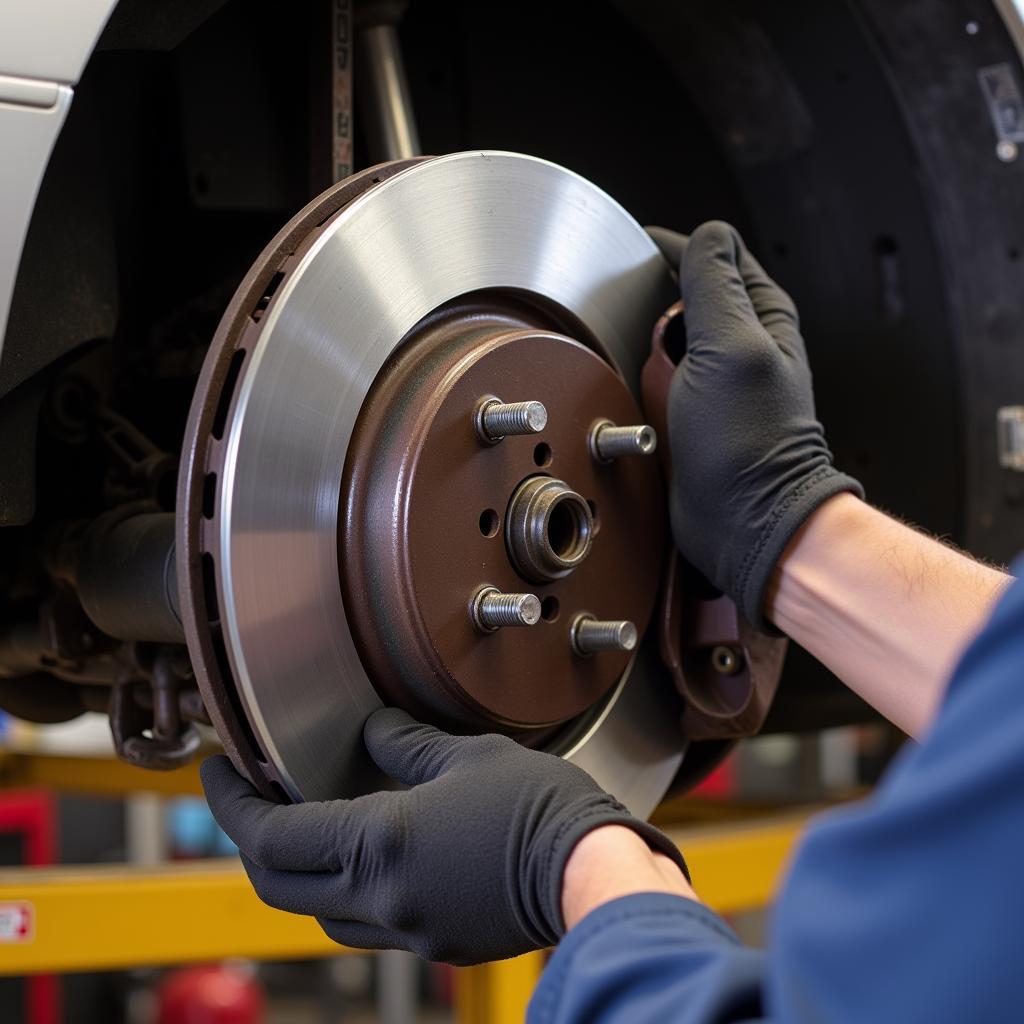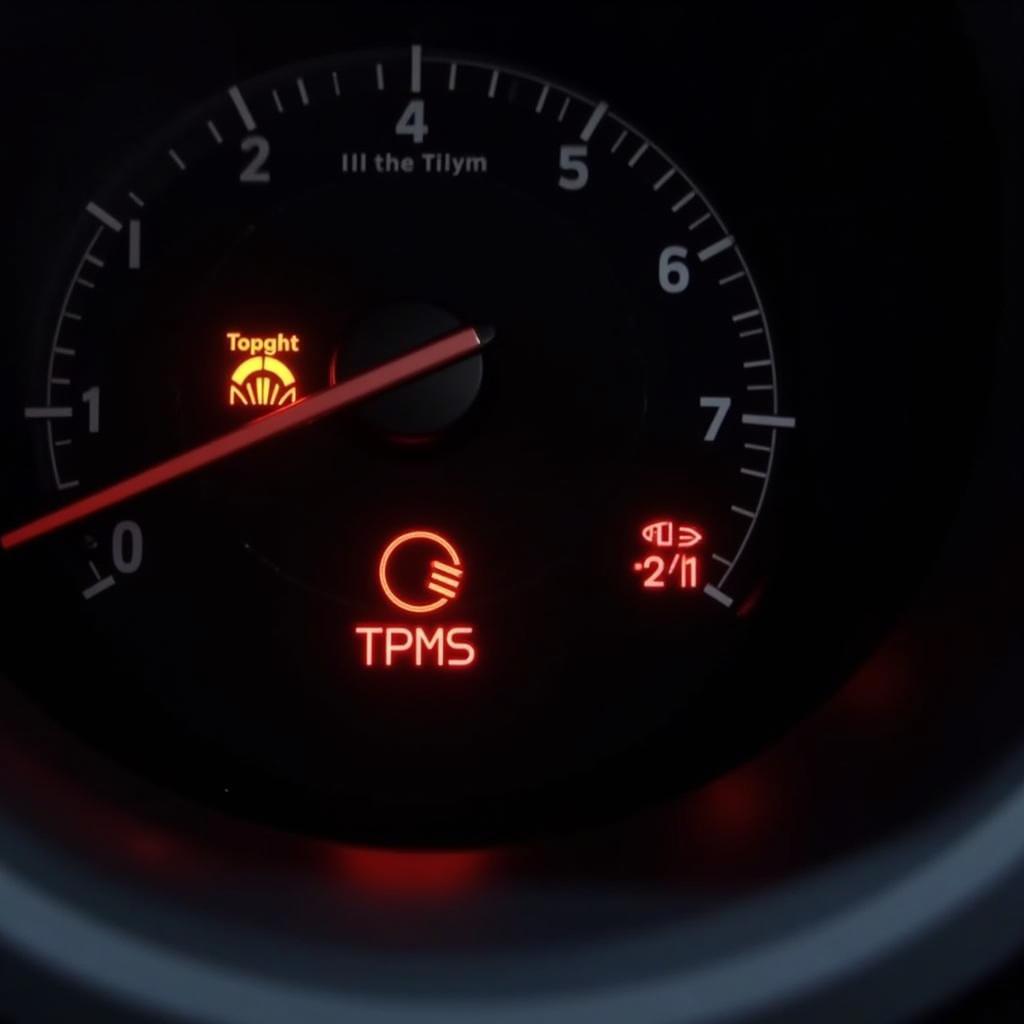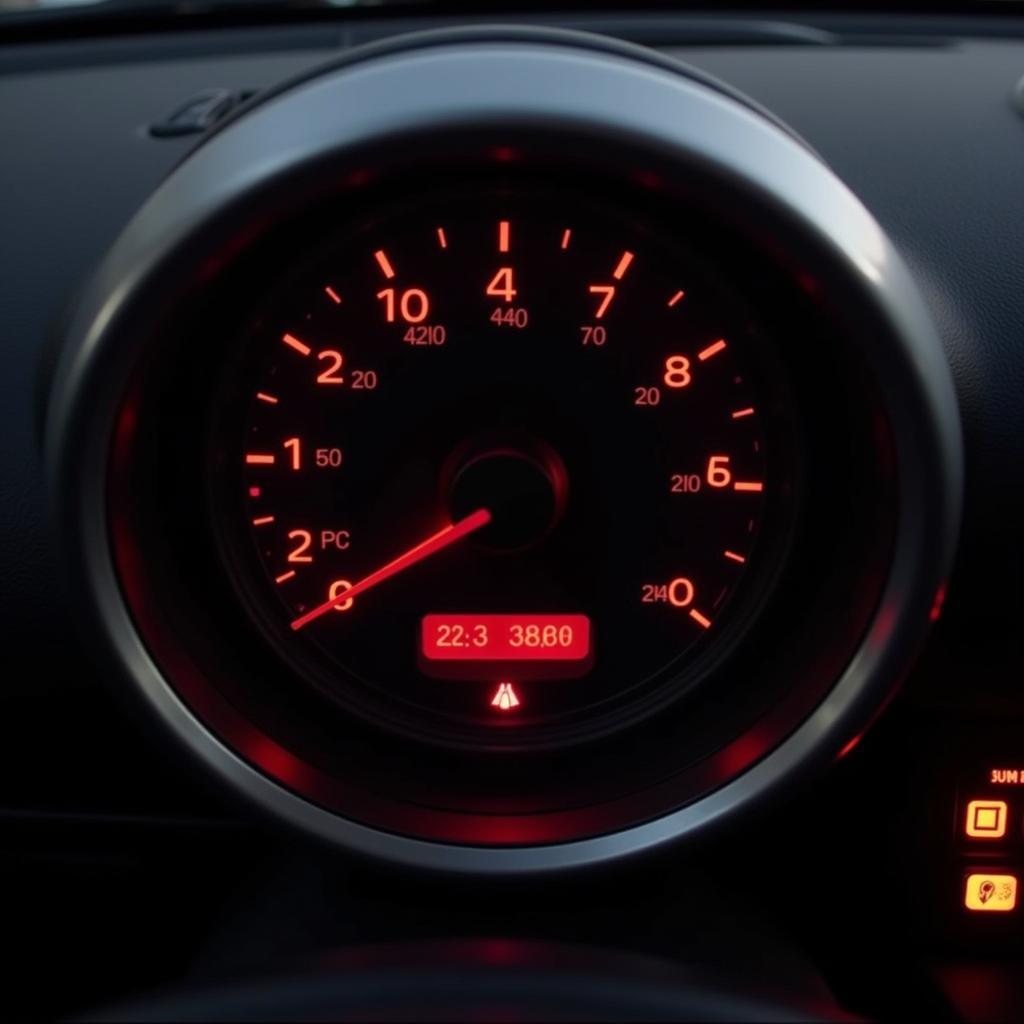You just had your brake shoes replaced, hoping for a smooth and quiet ride. But now, just one day later, you’re hearing that dreaded squealing or grinding sound again. Don’t panic! Noisy brake shoes after installation are a common issue, and it doesn’t always mean a major problem. Let’s dive into the possible causes and how to get your brakes back to their quiet, efficient selves.
Common Causes of Noisy Brake Shoes After Installation
While there are many potential culprits behind those annoying brake noises, some are more common than others, especially shortly after installation:
- Improper Installation: This is a leading cause of brake noise after a shoe replacement. It could be anything from improperly seated hardware to incorrect adjustment of the parking brake.
- New Brake Shoes Bedding In: New brake shoes need time to adjust and wear in against the drum. This process, often called “bedding in,” can sometimes create noise for the first few hundred miles.
- Surface Rust or Debris: Even a small amount of rust or debris on the brake drums or backing plates can cause noise when the shoes come into contact. This is more likely in humid climates or if the vehicle hasn’t been driven recently.
- Low-Quality Brake Shoes: While not as common, using cheap or low-quality brake shoes can lead to premature wear, noise, and reduced braking performance.
 Brake Shoe Installation
Brake Shoe Installation
Troubleshooting and Solutions
The good news is that many of these issues can be resolved without a trip back to the mechanic. Here’s a step-by-step guide to help you troubleshoot and potentially fix the problem:
- Identify the Type of Noise: Is it a squealing, grinding, scraping, or clicking sound? The specific noise can provide valuable clues about the underlying cause.
- Check for Proper Bedding In: If you’re within the first few hundred miles after installation, the noise might be due to the new brake shoes bedding in. Follow the recommended bedding-in procedure from your mechanic or brake shoe manufacturer. This usually involves a series of moderate stops to help the shoes mate evenly with the drum.
- Inspect the Brake Drums: If possible, remove the wheel and visually inspect the brake drum for any signs of rust, scoring, or debris. Light surface rust can often be removed with sandpaper.
- Check for Loose Components: Ensure all hardware, including springs, retainers, and adjusters, are properly installed and secured. A loose component can cause vibrations and noise.
- Adjust the Parking Brake: If the noise is more noticeable when the parking brake is engaged, the cable might be too tight. Adjust the parking brake according to your vehicle’s specifications.
When to Seek Professional Help
While many brake noise issues are minor, some situations warrant professional attention:
- The noise persists even after trying the above steps.
- You notice a burning smell coming from the brakes.
- You experience reduced braking performance or a soft brake pedal.
- You are uncomfortable performing the troubleshooting steps yourself.
“It’s always better to err on the side of caution when it comes to brakes,” advises John Smith, a seasoned automotive technician with over 20 years of experience. “If you’re unsure about anything, or if the problem persists, it’s best to have a qualified mechanic diagnose the issue.”
Preventing Future Brake Noise
Regular brake maintenance is key to preventing premature wear and those irritating noises:
- Schedule Routine Brake Inspections: Have your brakes inspected at least once a year, or more frequently if you drive in harsh conditions.
- Avoid Riding the Brakes: Prolonged braking generates excessive heat, which can lead to premature wear and noise.
- Use High-Quality Brake Components: Investing in quality brake shoes and other components ensures optimal performance and longevity.
By understanding the common causes of brake noise and following these tips, you can keep your car stopping smoothly and quietly for miles to come.
FAQ
1. How long does it take for new brake shoes to stop making noise?
The bedding-in period for new brake shoes typically lasts for the first 200-500 miles. However, it can vary depending on driving conditions and braking habits.
2. Is it safe to drive with noisy brakes?
While some brake noise can be normal, any unusual or excessive noise should be investigated promptly. Ignoring brake problems can compromise your safety.
3. How much does it cost to fix noisy brake shoes?
The cost of repair depends on the underlying cause. A simple adjustment might be inexpensive, while replacing damaged components can be more costly.
4. Can I use brake grease on the back of brake shoes?
Applying brake grease to the back of brake shoes is not recommended unless specifically instructed by the manufacturer.
5. How often should I replace my brake shoes?
Brake shoe lifespan varies greatly depending on driving habits and conditions. It’s best to consult your vehicle’s owner’s manual for recommended service intervals.


